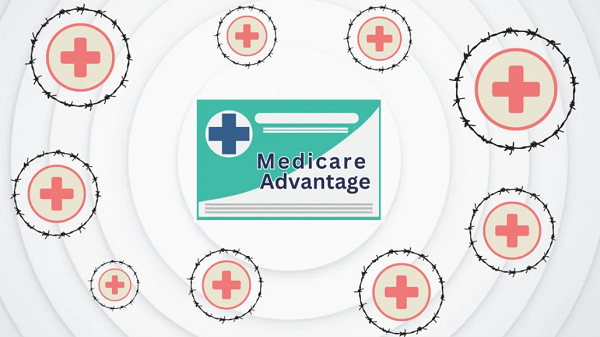BETWEEN YOU AND YOUR DOCTOR: How Medicare Advantage care denials affect patients
By Matthew Cunningham-Cook
March 4, 2024
 In 2023, insurance behemoth UnitedHealth spent $8 billion buying back its stock to juice its stock price—and its executive compensation, which is tied to the company’s stock price. It spent 39% more on stock buybacks in 2023 than in 2022. In 2023, It also spent $6.7 billion on dividend payments—a 10% jump from the prior year.
In 2023, insurance behemoth UnitedHealth spent $8 billion buying back its stock to juice its stock price—and its executive compensation, which is tied to the company’s stock price. It spent 39% more on stock buybacks in 2023 than in 2022. In 2023, It also spent $6.7 billion on dividend payments—a 10% jump from the prior year.
The company’s CEO, Sir Andrew Witty, pulled in nearly $21 million in 2022—a 13% hike from 2021. (His compensation for 2023 hasn’t been disclosed yet. Also in 2023, UnitedHealth spent $10.76 million lobbying Congress. That doesn’t count the trade groups it belongs to; it pumped $9.9 million into those memberships in 2022 and hasn’t released the latest numbers yet.
All of those reasons and more explain why Jenn Coffey, a 52-year-old former EMT in Manchester, New Hampshire, can’t get the medicine she needs to be able to enjoy life.
“UnitedHealth doesn’t care about me,” Coffey said. “I’m a liability, I cost them too much money. They make a profit by not giving me the care I need. The company is in charge of deciding who does and doesn’t get care. My doctor says, ‘You need this infusion.’ UnitedHealth is standing in the doorway saying ‘No you don’t.’”
With 33 million enrollees, Medicare Advantage plans now cover more than half of all total Medicare beneficiaries. And while there are major concerns about the program’s cost—as much as $140 billion annually to taxpayers over Traditional Medicare—equally if not more concerning is the way MA plans often block access to care through “prior authorization.”
Prior authorization, which is rarely used in Traditional Medicare, is when an insurer inserts itself in the decision-making process between a doctor and a patient. It’s a practice that is supposed to reduce costs and assure appropriate care but is often used excessively by private insurers and frequently results in significant treatment delays.
Coffey has complex regional pain syndrome, a rare illness that typically emerges after surgery or a heart attack. One of the few effective treatments for CRPS is intravenous ketamine infusions. After numerous appeals, UnitedHealth agreed to expedite its prior authorization process for Coffey. But after paying for just one of her ketamine infusions, the company stopped paying and stopped expediting.
“I have to get a prior authorization before I go in for an infusion,” Coffey said. “It’s a never-ending nightmare with them. I didn’t ask to get complex regional pain syndrome. I paid into the system thinking it would be there for me. Now it’s not there for me. I get nauseated and horrible headaches from being on the phone for hours with UnitedHealth trying to get the care I need. But it’s my only option. My only other choice is to do nothing and let myself decay and die.”
UnitedHealth didn’t respond to a request for comment from HEALTH CARE Un-covered.
Representative Pramila Jayapal (D-Wash.), the chair of the Congressional Progressive Caucus, said in November that prior authorization “has turned into a process of basically just stopping people from getting care.” Senator Ron Wyden (D-Ore.) told Politico, “It was stunning how many times senators on both sides of the aisle [during a recent Congressional hearing] kept linking constituent problems with denying authorizations for care.”
In February 2023, researchers from KFF, a health policy think tank, estimated that there were 35 million prior authorization requests in 2021, the most recent year for which data was available, and two million of the requests were denied. Only 11% of the denials were appealed, but of 82% of the denials that were appealed, the original denial was overturned. A rough estimate would suggest that there are as many as 1.5 million improperly denied Medicare Advantage prior authorizations in a given year.
[READ THE COMPLETE ARTICLE HERE]
